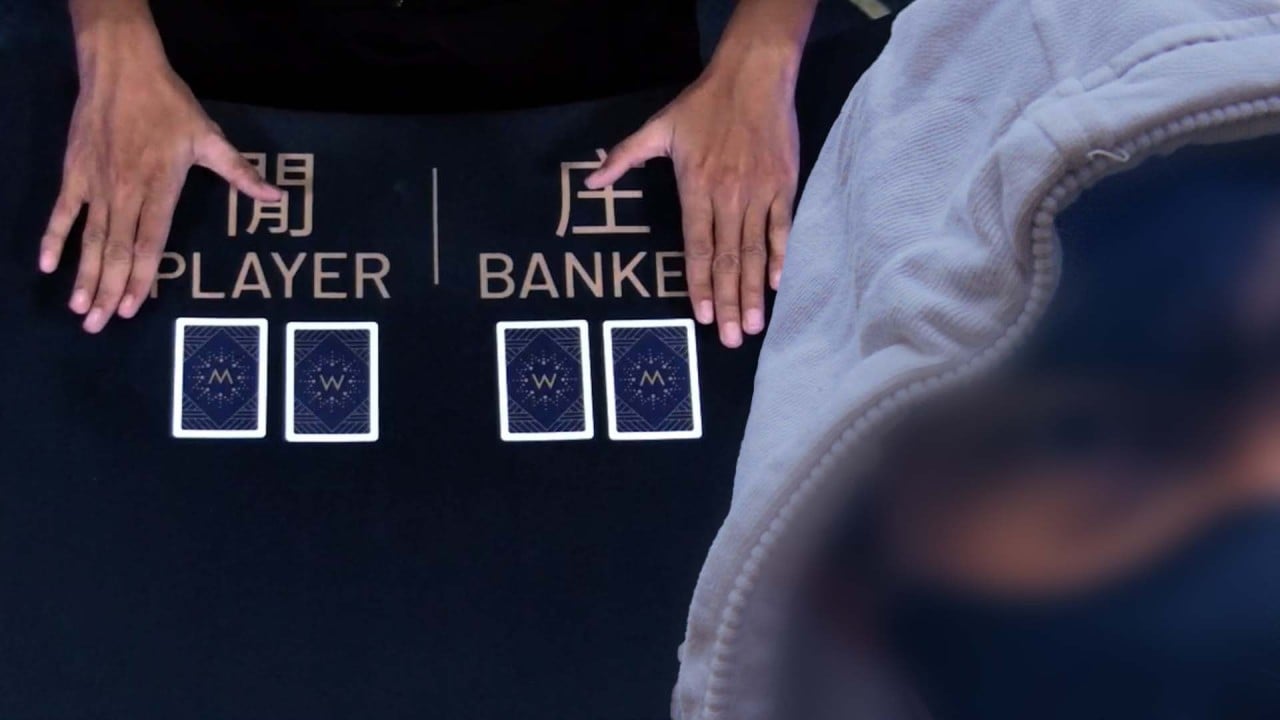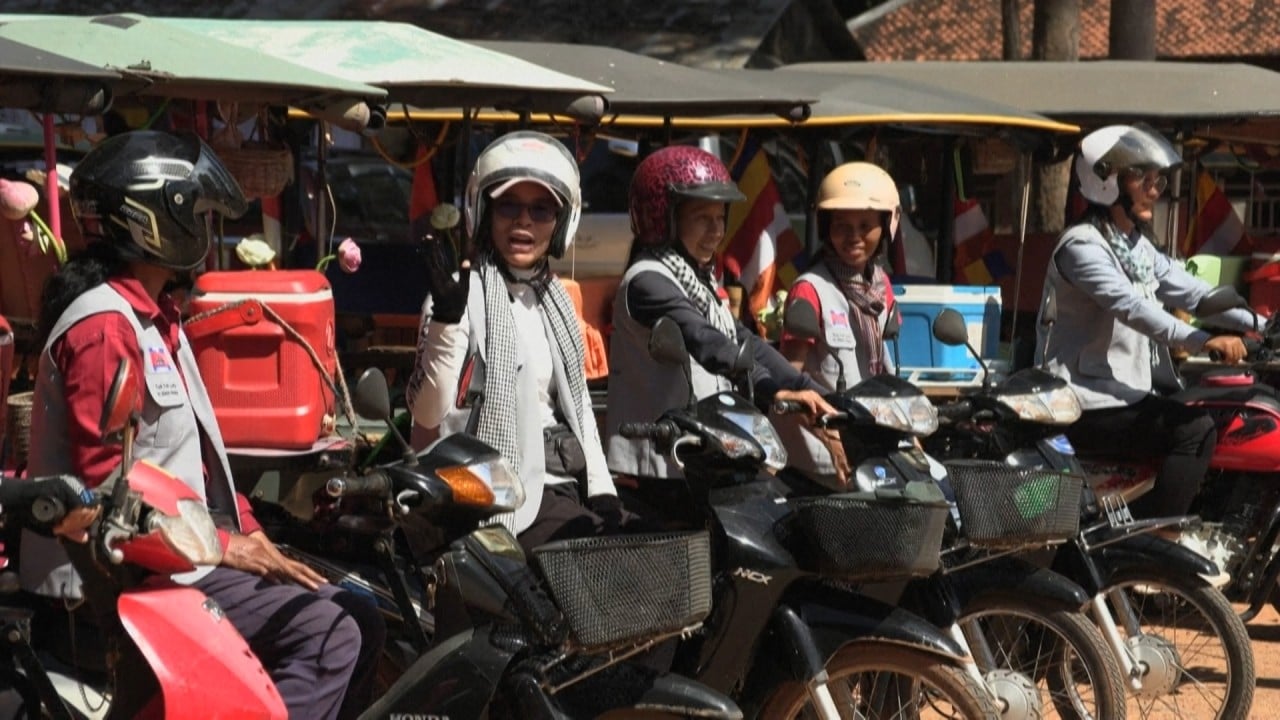Inside Southeast Asia’s Casinoland: the ‘underground bank’ at the centre of transnational crime
[ad_1]
“Most countries in the region pay virtually no attention to casino junket operators and other VIP tour companies,” said the report, titled “Casinos, Money Laundering, Underground Banking and Transnational Organized Crime in East and Southeast Asia: A Hidden and Accelerated Threat”.
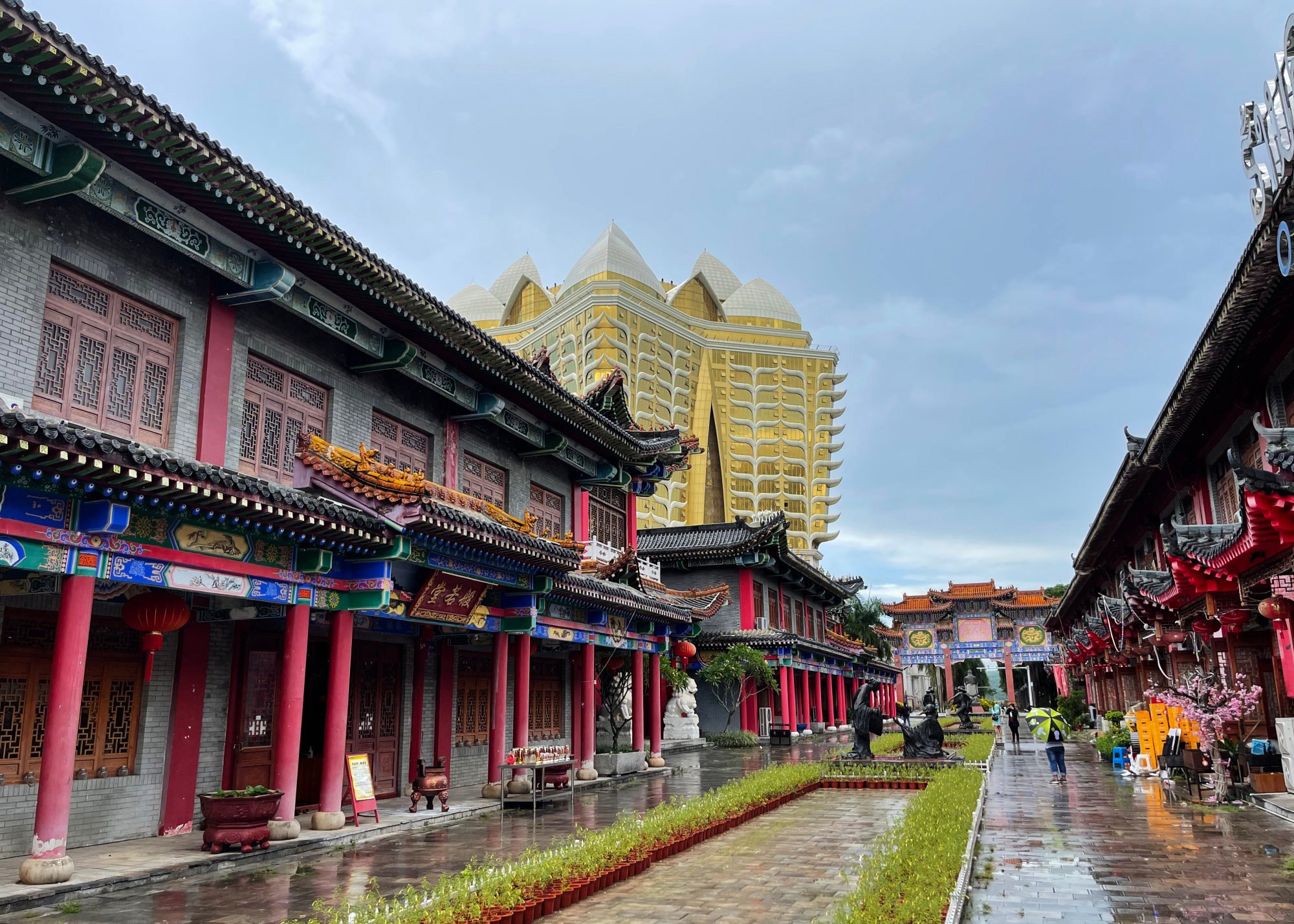
As China issued warrants, the major players fled abroad, hidden under layers of new nationalities and false passports, to build casino networks and “smart city” projects in Southeast Asian countries.
Crackdowns may hurt, but in the long-term are of limited impact to criminal enterprises which are in constant evolution to make money and then clean it, the report added.
‘We can kill you here’: inside the lawless Chinese-run scam hubs of Myanmar
‘We can kill you here’: inside the lawless Chinese-run scam hubs of Myanmar
How money laundering works
Casinos and their money exchanges handle all aspects of money laundering, according to the report: “placing” black money into a legal business, “layering” it by distancing and redistributing the funds from their original source and then “integrating” it among general gambling proceeds and other businesses within a casino.
Casino junkets in particular – which bring high rollers into casinos with private rooms, VIP services and even free flights and hotel rooms – serve as a weak link in anti-money-laundering policies that casinos try to operate, and are vulnerable to being “infiltrated by organised crime groups”, according to the UN report.
Junkets then allow the criminal insider to “offset” the value of an asset in another country on the table, or after a few hours simply leave, having converted cash into digital tokens as now-clean “winnings”.
Others use multiplier bets, where the gambler and house both agree the bet on the table is worth a fraction of the actual amount being wagered – a common tactic investigators found in use in Alvin Chau’s Suncity.
China’s anti-money-laundering drive entangles legit remittances from Singapore
China’s anti-money-laundering drive entangles legit remittances from Singapore
The ease of moving has been a feature – not a bug – in the junket system, Ben Lee, managing partner for the regional gambling consultancy iGamix said.
“The junkets arose in Macau to fulfil a function that the casinos could not perform, that is, to market to China [and] to help them move money out to gamble,” Lee told This Week in Asia.
Formally, online gambling is expected to become a US$205 billion industry globally by 2030, with some 37 per cent taking place in Southeast Asia through 2026, the UNODC report predicts.
Role of crypto
For these unofficial casino “banks”, cryptocurrency, especially USDT on the TRON exchange, is the preferred payment, the report says.
This Week in Asia identified similar vocabulary on Telegram channels running all kinds of exchanges in USDT, all connected to the Cambodia-registered money exchange Huione.
Tether, the company behind the stablecoin USDT widely used in the industry, has denied that their fiat could be used for laundering.
“Tether tokens, using public blockchains, make it possible to meticulously track every transaction, making it an impractical choice for illicit activities,” it said in a statement on Monday.
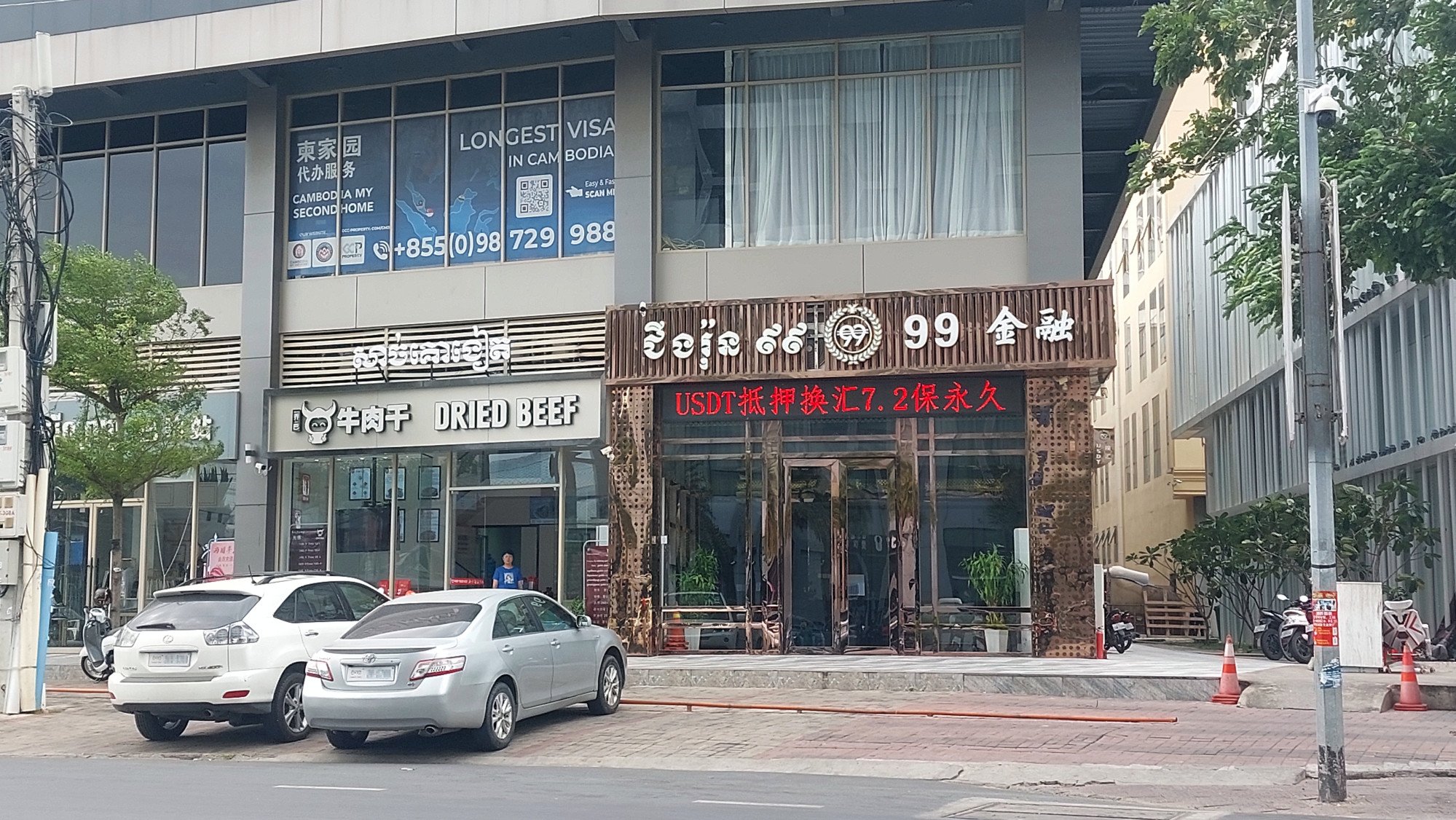
But Tom Robinson, co-founder of the crypto investigation firm Elliptic, says stablecoins in particular are being used to facilitate these illegal trades, pointing to “crypto brokers” or currency exchanges, such as the Cambodia-based Huione as available platforms.
“Key enablers of this are non-compliant crypto brokers, who allow stablecoins to be bought and sold without proper anti-money-laundering checks,” he added.
“Cracking down on these services would help to prevent stablecoins from being exploited by criminal groups.”
All roads lead to Cambodia
In Cambodia, a developing country with an official GDP of about US$32 billion but where millions of workers live hand-to-mouth or rely on loans, the insignia of extreme wealth on the streets points to the potential of shadow businesses running below the surface.
Colourful Ferraris, Lamborghinis and even a US$2 million armoured Rolls-Royce Cullinan have been spotted on Phnom Penh’s pothole-covered roads.
Tuk-tuk drivers earn a small stipend of around US$100 for putting signs on their vehicles advertising an alphabet soup of online gambling platforms – AZ888, FUN88 and BK8 among others.
When travellers from Vietnam enter Cambodia’s border town of Bavet, they’re greeted by a giant billboard of Uruguayan footballer Luis Suarez, imploring the public to make a bet on 789 bet.
Even as Cambodian citizens complain of a lack of jobs and low wages, Facebook and Telegram ads in Chinese and Vietnamese indicate there are dozens of “online” jobs available in Cambodia, with “white label” online sales businesses that promise foreign workers visas and “we don’t detain workers”.
Cambodian officials have been reticent to respond to the reports of human trafficking into the country and the existence of unregistered, illicit businesses like online casinos and scam operations.
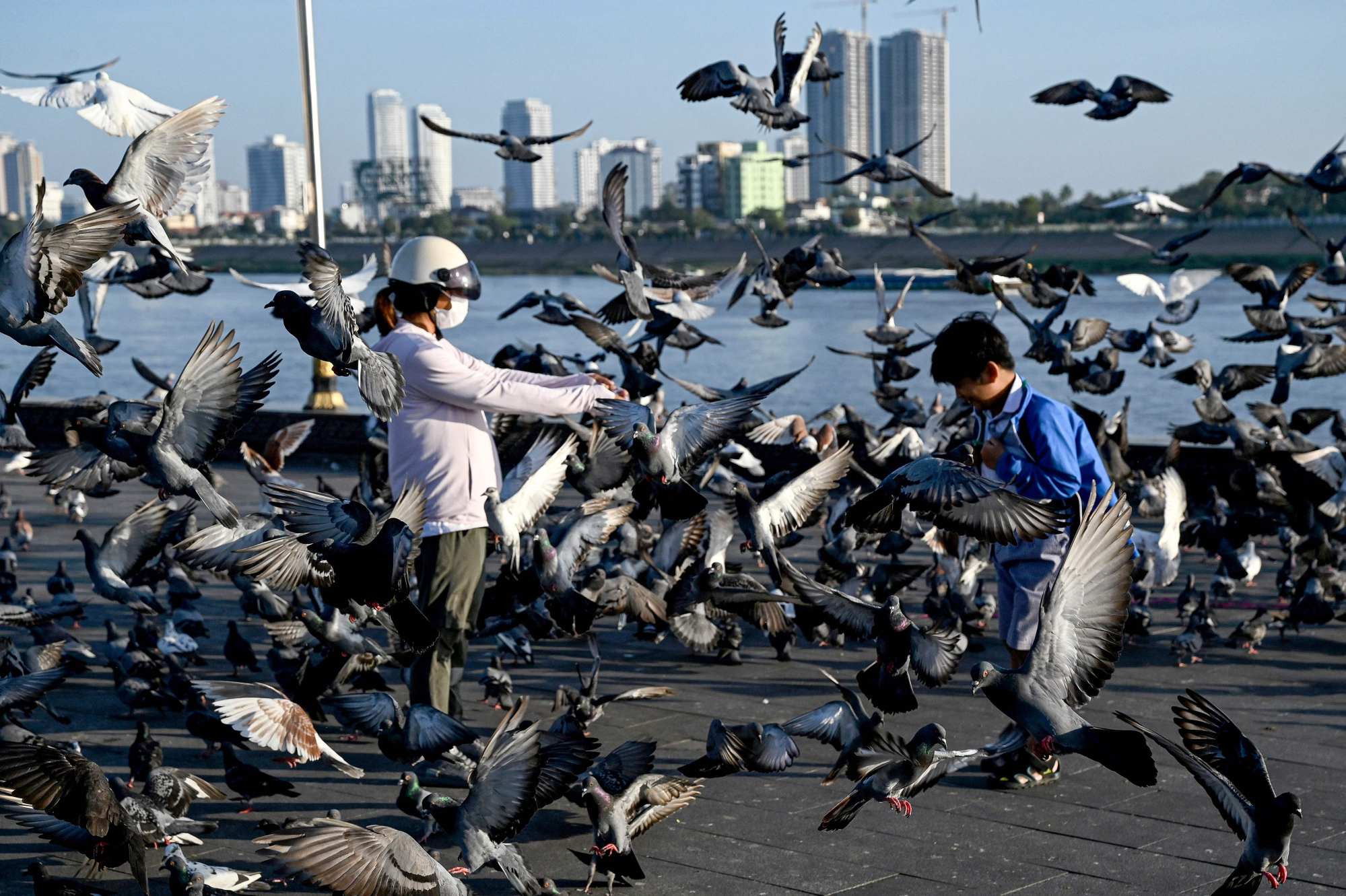
The Interior Ministry’s anti-trafficking chief Chou Bun Eng complained in an interview with government-aligned newspaper Khmer Times that Cambodia was the victim of “biased reporting” on its recent human trafficking epidemic, claiming that only about 1 per cent of people who claim they are detained and tortured are “actual victims.”
But she had little to say about the suspicious businesses, claiming they used “advanced technologies” that the government couldn’t investigate alone.
Based on work investigating and assisting workers detained and tortured in casinos and casino-adjacent facilities, Jake Sims, senior technical adviser for the NGO International Justice Mission, estimates the industry is handling “tens of billions of dollars in dirty money”.
But it’s a multidimensional issue, with the criminal enterprises, from drugs to cyber scams, cross-pollinated via casinos in multiple countries.
“This is an epidemic of transnational organised crime,” Sims added.
[ad_2]
Source link


